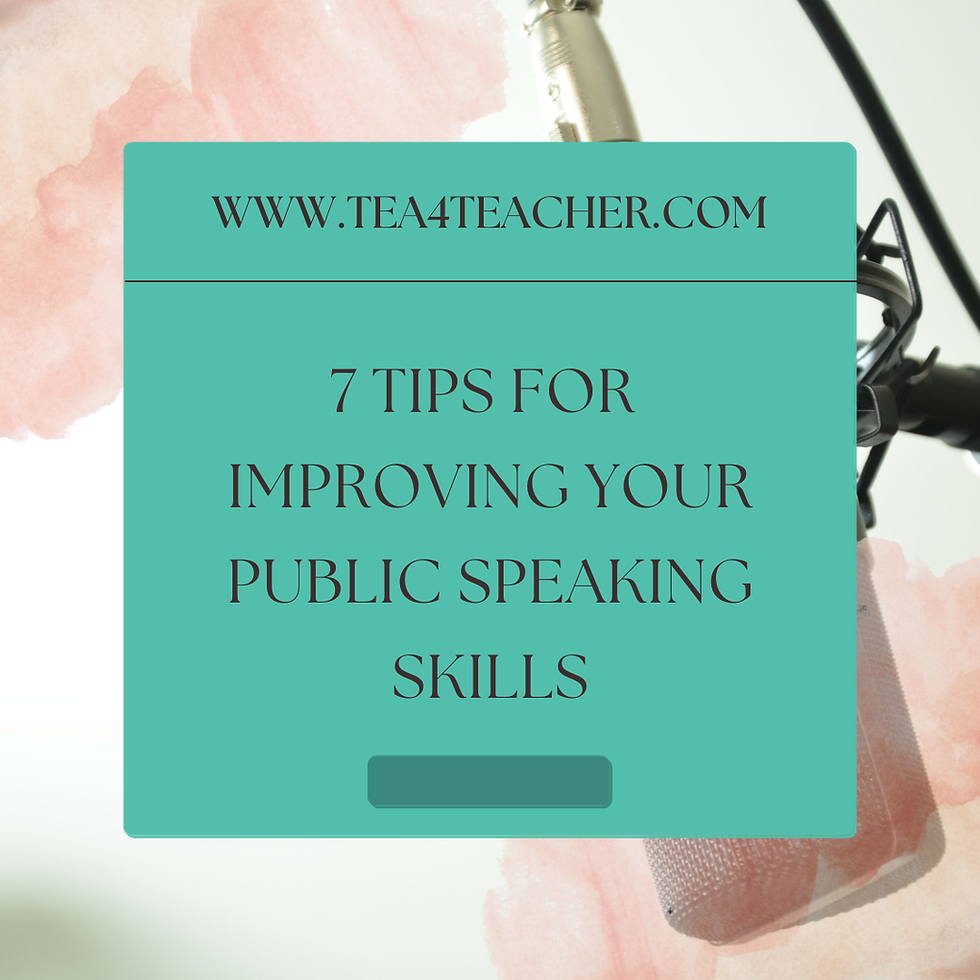3 Top Tips for Getting the Best Speeches Out of Your Students.
- Anna @ Tea4Teacher
- Jun 4, 2021
- 3 min read
Updated: Sep 20, 2025
There are two distinct reactions when you announce that the next topic is giving speeches. There's the 'Yes, easy!' and the 'NOOOOOO, I HATE speeches!' followed by differing degrees of wailing and teeth-gnashing.
So how can we help both sets of students give their best when it comes to oratory word and speech-giving? There are a few easy things you can do:
1. From the outset of the speech topic time, start getting students used to one another and used to speaking in front of one another. Daily. Any chance you get. Play a game or do an activity where they must present their ideas and speak up in front of the class. This is good old desensitization at its best. Kids will do much better on the day if they have broken the ice about standing up the front multiple times before presenting their formal speech.
Ideas:
Speak without stopping for a full minute on fun or random topics. Can do in teams and teams lose a point if the person stops speaking too early.
Introduce their neighbor, play 2 truths and a lie, or other speaking games, but when anyone speas they must stand up to do so.
Give a mini-speech (1 minute) on a topic - pet peeve, a sneaky skill they have etc I once had a student show how he could fit half his foot into his mouth - entertaining...
Play action games such as movement games - standing in a circle and interacting. Anything but hiding behind a desk.
2. Look at examples of good speeches. Watch famous movie speeches and speeches from famous people and critique them using a graphic organizer. The more they can see for themselves what sets a good speaker above a poor speaker, the more likely they will try to emulate these characteristics themselves.
3. Be prepared early so there is time for in-class practice. Set the date for having their speech written and cue cards ready at least a full week before they must present in class. They must be completely ready. Then in class you can send them off in pairs to present their speeches to one another. Partners must time and give 2 tips on how to improve. Then switch partners and go again. Do this for at LEAST a full hour. Good speakers will generally practice at home in a meaningful way, such as in front of parents. Poor speakers will generally practice in the mirror and have no sense of being in front of an audience. Doing some practice in class evens up the playing field, as well as getting all students some valuable input. Expect them to practice at home as well, with a sign-off sheet if you wish.
Find these and more in my store! (Or click HERE. :)
At the end of the day, different kids will respond differently to the idea of public speaking, and that's fair enough, but while they are young I feel it is great to push students to have a go and do their best, giving them valuable skills for the future. And I do so enjoy seeing their proud faces when they deliver and impress even themselves. Well worth a little extra effort in preparation.
All the best with your kiddies and I hope you get some wonderful speeches :)
Anna from Tea4Teacher.










Comments